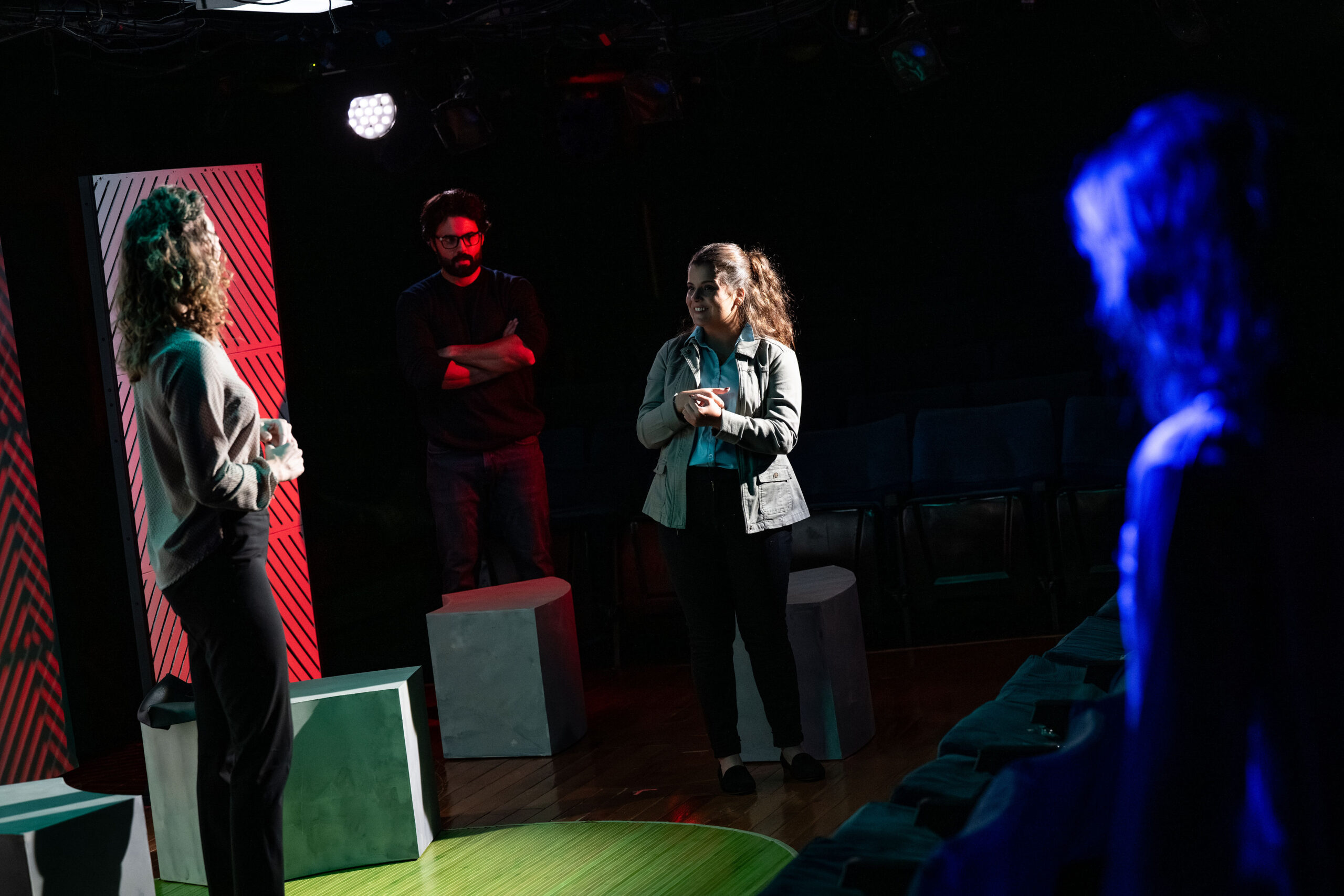
The company of The Glitch. Photo: Shawn Salley
If I had given any thought to the phrase “comedic farce” before last week, it would have been to dismiss it as redundant. Farces are always comedic—or so I thought before seeing The Glitch at the Theater Center, a new play that attempts a form I hadn’t before contemplated: the dramatic farce.
The science-fiction tale follows Wyatt (Sunny Makwana) and Wendy (Jacquie Bonnet), who are beta-testing a company that uses a couple’s information to let them interact with their not-yet-conceived child. Trying to decide whether or not to have a child, client Amy (Danielle Augustine) meets her theoretical future daughter Hailey (Hannah Doherty), but something goes awry and Amy finds herself in the presence of her real future daughter, Claire.
Other than not being funny (intentionally, I believe), The Glitch retains many of the hallmarks of farce. There are the exaggerated, two-dimensional characters; a ridiculous disguise complete with ludicrous accent; improbable coincidence and implausible plotting; and Scooby Doo-like revelations. If it is hard to picture how these elements would work in a drama, it is probably because they don’t.
Generally speaking, farce employs absurdity and excess to magnify that which the artist seeks to critique. Without humor, though, the over-the-top elements call attention only to themselves, preventing any connection between audience and action. And without any societal problem to address—normally the essence of farce—the play feels at sea.
While I applaud any effort to break free from the constraints of modern drama’s overreliance on realism, The Glitch never finds its footing in either conception or execution. The staging is awkward, the acting is inconsistent, the lights and set (perhaps borrowed from the show that normally occupies the space?) generic and ineffective.
There are so many things going wrong it feels arbitrary to single out specific elements, and the whole is so amateurish it seems cruel, but here goes a small selection: In the performance I saw, Augustine called Makwana “Wyatt” near the end of the play when he was still in disguise as another character; since Makwana had lost his fake Russian accent, I assumed I had missed a big revelation, but it came a minute later. Perhaps it was where I was sitting or maybe it was the lighting, but I could not see Doherty’s face for almost the entire play. The already hard to swallow science-fiction premise that an omniscient AI will be able to predict the future is mixed with a supernatural element, that the real child is communicating with her parents, and makes for a muddled and uninteresting plot. We are also repeatedly told that meeting her future child will help Amy, but how and why are never clear. The list goes on.
I wanted to like The Glitch. I really did. I’m old enough that I find assurance and value in young people making art and taking chances (I believe this stage is normally occupied by the Friends! musical parody, a show I know nothing about but doesn’t sound like it is breaking any new ground). Had I seen this play at a college I would have been able to praise the effort that went into it and the obvious passion these artists have for their craft. But passion and effort are not enough reason to shell out $70 for a show.
